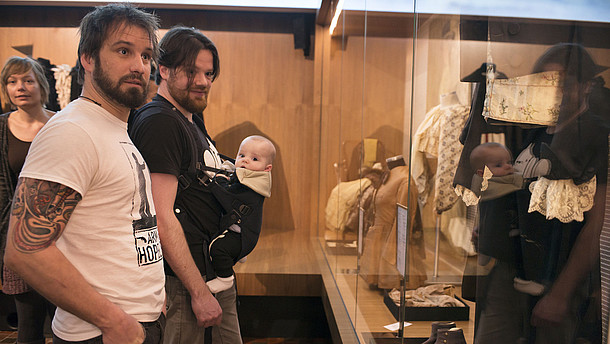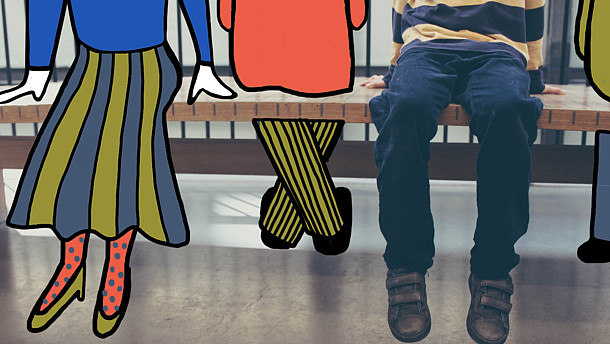On Wednesday 14 November, the European Parliament will vote on the report in plenary. Once adopted, the Parliament will enter into negotiations with the Council (member states) over the future EU budget. The report details its position on the proposals for the 2021 to 2027 multiannual financial framework (MFF), including the breakdown of resources and EU revenue.
Read the letter that was sent to the members of the Budget Committee on 5 November below.
---
Dear Member of the BUDG Committee,
We are writing as group of 57 organisations from across the cultural and creative sectors ahead of the vote of the Budget committee on the next EU MFF 2021-2027 on 5th November.
We welcome the report's proposal to increase the Creative Europe budget to €2.8bn, and call on you to support this much needed boost to the only EU programme dedicated to cultural and creative sectors.
This ambition is shared by MEP Costa in her report on Creative Europe, as well as by MEP Grammatikakis in his report on a New European Agenda for Culture.
As it is now well established, culture and creativity are among Europe’s strongest assets. Their contribution to the social, economic and artistic development of Europe fully justifies the added value of EU investment in culture.
But these sectors remain structurally underfinanced. As highlighted in the impact assessment accompanying the investEU proposal, the financing gap for creative SMEs and micro organisations across Europe is estimated to be somewhere between €8bn and €13bn.
At 0,16% of the MFF, the Creative Europe budget is by no means proportionate to these sectors' contribution, and the programme has very low success rates.
We hope we can count on you to support the proposed increased budget for Creative Europe.
Yours sincerely,
The undersigned organisations:
- ACCR Europe (Réseau Européen des Centres culturels de rencontre)
- AEC (Association Européenne des Conservatoires, Académies de Musique et Musikhochschulen)
- AER (Association of European Radios)
- Circostrada (European Network Circus and Street Arts)
- CEPI (European Coordination of Independent Producers)
- CEPIC (Centre of the Picture Industry)
- Culture Action Europe
- EAS (European Association for Music in schools)
- ECF (European Cultural Foundation)
- Europavox
- European Choral Association - Europa Cantat
- ECCD (European Coalitions for Cultural Diversity)
- ECCO (European Confederation of Conservator-Restorers' Organisations)
- ECHO (European Concert Hall Organisation)
- ECSA (European Composer & Songwriter Alliance)
- EFAITH (European Federation of Associations for Industrial and Technical Heritage)
- EFFORTS (European Federation of Fortified Sites)
- EHTTA (European Historic Thermal Towns Association)
- EIBF (European and International Booksellers Federation)
- EJN (Europe Jazz Network)
- ELIA (European League of Institutes of the Arts)
- EMC (European Music Council)
- EMU (European Music School Union)
- ENCATC (European Network on Cultural Management and Policy)
- Europa Nostra, coordinator of the European Heritage Alliance
- Eurosonic Noorderslag
- Eurozine (European network of cultural journals and online magazine)
- ERIH European Route of Industrial Heritage
- ETC (European Theatre Convention)
- EUYO (European Union Youth Orchestra)
- EWC (European Writers' Council)
- FEP (Federation of European Publishers)
- FIA (International Federation of Actors)
- FIAD (International Federation of Film Distributors' Associations)
- FSE (Federation of Screenwriters in Europe)
- GESAC (European Grouping of Societies of Authors and Composers)
- IAMIC (International Association of Music Information Centres)
- IAO (International Artist Organisation)
- IFLA Europe (International Federation of Landscape Architects Europe)
- IGCAT (International Institute for Gastronomy, Culture, Arts and Tourism)
- IMMF (International Music Managers Forum)
- IMPALA (Independent Music Companies Association)
- IMPF (Independent Music Publishers International Forum)
- INES (Innovation Network of European Showcases)
- ISFE (Interactive Software Federation of Europe)
- JMI (Jeunesses Musicales International)
- Live DMA (European network for music venues and festivals)
- Liveurope
- NEMO (Network of European Museum Organisations)
- On the Move (Cultural Mobility Information Network)
- Pearle* (Live Performance Europe)
- Res Artis (Worldwide Network of Artist Residencies)
- Robert Bosch Cultural Managers Network
- SHAPE (Sound, Heterogeneous Art and Performance in Europe)
- TEH (Trans Europe Halles)
- UNIC (International Union of Cinemas)
- UNI MEI (UNI global union - Media and Entertainment International)





